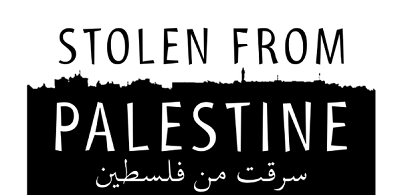After years of dithering and delay, the European Union on Wednesday finally took the minimal step of requiring labels clearly marking goods that come from Israeli settlements built on occupied Palestinian and Syrian land in violation of international law.
Palestinians welcomed the move, but are decidedly underwhelmed. Nonetheless the European step holds some important messages.
Mahmoud Nawajaa, general coordinator for the Palestinian BDS National Committee, the broad coalition that backs the boycott, divestment and sanctions movement, said it was a “sign that European governments are reacting to public opinion, civil society campaigning and Israeli intransigence and are becoming more willing to take some basic action against Israeli violations of international law.”
But, Nawajaa added, “putting some labels on a small number of Israeli products is hardly a proportionate response to repeated Israeli war crimes.”
Not "Made in Israel"
Under the new regulation, labeling of goods imported into the EU “must be correct and not misleading.”
Products made in Israeli settlements in the occupied West Bank, including East Jerusalem, and Syria’s Israeli-occupied Golan Heights can no longer be marked “Made in Israel.”
The EU requires that the words “Israeli settlement” be added to the labels that consumers will see in stores.
It is unclear how the regulation will be enforced: Israeli exporters routinely deceive customs officials and retail chains about the origin of their goods.
The regulation also says that “products from Palestine that do not originate from settlements can be marked ‘product from Palestine’ or ‘product from West Bank (Palestinian product).’”
The EU considers “Palestine” to be limited, at most, to the occupied West Bank and Gaza Strip – just 22 percent of historic Palestine.
Article 1 Collective, a group that advocates for Palestinian rights under international law, had this tongue-in-cheek suggestion of what the new labels might look like:

EU hypocrisy
The EU move smacks of hypocrisy.
While taking a minor step, EU governments still refuse to end their arms trade and other material support for Israeli crimes, as hundreds of European trade unions and other organizations have demanded.
EU countries sent weapons and military exports to Israel worth $1 billion in 2012-13.
Greece, Italy and Germany continue to carry out joint training with the Israeli army, despite its well-documented war crimes against Palestinians in Gaza and elsewhere.
My colleague David Cronin has meticulously documented the myriad ways the EU funds and actively supports Israel’s war machine.
It is also notable that France has been particularly keen on the labeling of settlement goods. But what, ultimately, is its purpose if not to allow consumers to make the choice to boycott these goods?
Yet, France continues to hypocritically prosecute and fine its own citizens for the “crime” of calling for just such boycotts.
As long as such complicity continues, the EU labeling move – as much as it might anger Israel – is a fig leaf for European policies that continue to help Israel kill Palestinians and steal their land.
Nazi comparisons
Israeli foreign ministry spokesperson Emanuel Nahshon said the new labeling policy was “discriminatory” and “smacks of boycott.”
In a sign of their anger, Israeli officials canceled meetings with EU counterparts.
As The New York Times reported, Israeli politicians condemned the move as an “echo of the Holocaust-era branding of European Jews and their storefronts with yellow stars.”
Michael Oren, the former Israeli ambassador to Washington who is now a lawmaker in the government coalition, posted a photo on Facebook of a storefront in Nazi Germany daubed with a Star of David and the word “Jew,” and a sign telling Germans not to frequent Jewish-owned businesses.
Some Israel supporters posted images on social media of the EU flag emblazoned with a Nazi swastika.
The pro-Israel publication The New York Times hammered the point home in its own social media messaging:
Might as well show courage
These unhinged reactions holds two key messages. First, by comparing EU labeling to Nazism, Israel’s backers demonstrate that no tactic is too depraved or indecent.
Using the Nazi genocide to deflect criticism from Israel’s racist, illegal theft of land from Palestinians cheapens the lives of the millions of Jews murdered by Europeans.
But Israeli Prime Minister Benjamin Netanyahu himself recently showed that such disgusting propaganda was fair game when he fabricated the story that Hitler got the idea for the Holocaust from a Palestinian.
The second lesson is one that chronically gutless European leaders should heed.
Once Israeli leaders have labeled you a Nazi, there’s really nothing worse they can say.
So if EU leaders are likened to Hitler for a move as minimal as mere labeling of settlement goods, then why not do something more courageous and effective?
The price is the same, so you might as well support all Palestinian rights and all legitimate means to achieve them.
But sadly, EU leaders are unlikely to absorb this. Instead, they’ve been trying to assuage Israel’s rage by professing a deep desire for even more cooperation and complicity with it, and downplaying the significance of the labeling move.
The most important message is this: EU leaders will continue to coddle Israel’s brutal regime of occupation, apartheid and settler-colonialism unless European citizens maintain and escalate their valiant solidarity campaigns with the Palestinian people.
Ali Abunimah - The Electronic Intifada, 12 november 2015

 Er zijn inmiddels meer aanbieders van Palestijnse producten.
Er zijn inmiddels meer aanbieders van Palestijnse producten.